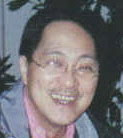GOTCHA By Jarius Bondoc, The Philippine Star, Friday, July 4, 2008
Everyone cherishes stories from their grandfathers. That’s why they’ll relish a story of the
Fight for the Filipino is actually an autobiography. Guingona recounts his formative years; stints in the Constitutional Convention, political prison and government; and present role as national critic. But at each stage in life he situates himself with the country’s times. Birth on the 4th of July 1928 for early taste of American rule, on the run as a teenager in Mindanao jungles during the War, Ateneo studies during Liberation, social reformism as a young lawyer, struggle against martial law and for democratic restoration, and serving in the Cabinet, Senate and Vice Presidency. The ebbs and tides of the nation shaped him, as he endeavored to influence its destiny. Guingona writes of giving back to the Filipino what the country bestowed him.
The famous and notorious marked Guingona’s story and RP history. He played in grade school in
Sharp at 80 — the book launches today, his birthday — Guingona remembers intriguing and instructive twists of his and RP’s advance. At one point, show biz pals nearly convinced him to join the movies; he muses if it would have aided him later in politics as celebrity does now for many. President Manuel Quezon, fleeing from
A third of the book dwells on 2001 to present — the Arroyo regime. He saw in it at first a chance to cure the dysfunctions of Philippine society, but later realized it was a worsening of traditional politics. Devotion to national interest and readiness to serve fellowmen characterized the pre-War years. Survival to the point of collaboration with Japanese invaders made Filipinos wary even of their neighbors. Post-War politics divided instead of healed and rebuilt the land. Greed began to taint the highest levels of power. The government that succeeded the one Guingona helped oust for corruption turned out to be blacker. He recounts Arroyo’s spineless foreign policy, bribery in the Impsa and ZTE deals, sellouts of Sabah and Spratlys, and killings of dissenters. He also shares behind-the-scenes vignettes of anti-graft and anti-abuse fights he led, like the Commission for Truth and his role in the “Pen Siege”. Chief Justice Reynato Puno opens the book with a foreword that Guingona uses titles — Sen., Sec., Amb., E.S., V.P. — not as ends but as means to win his life’s battle. Guingona closes it with a rededication to fight for his oppressed countrymen.
* * *


